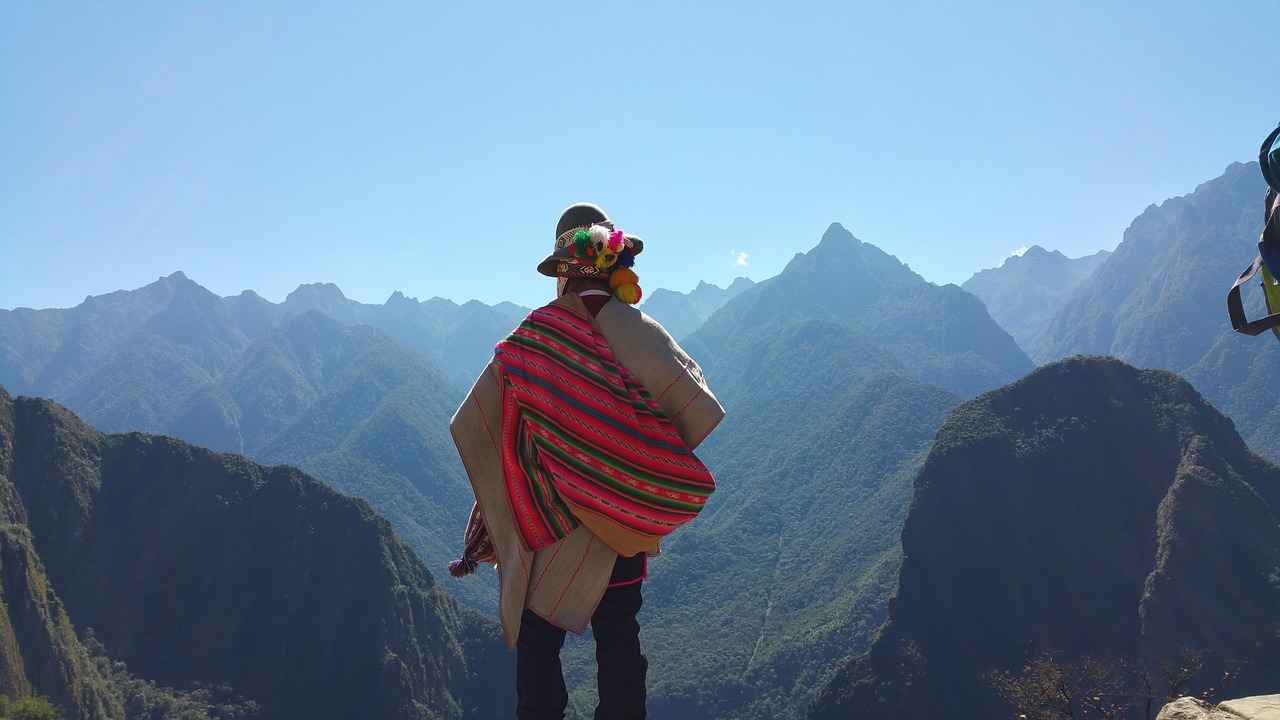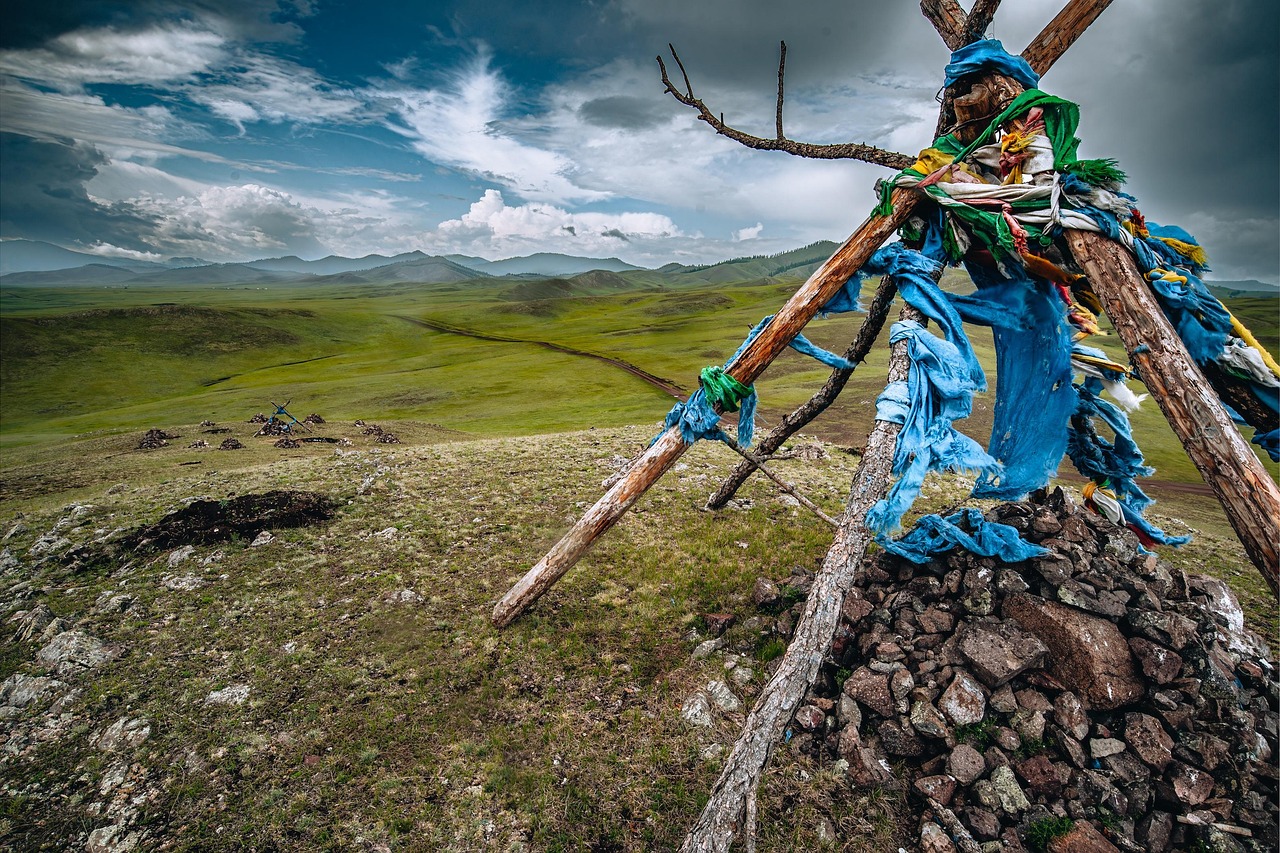This article delves into the intricate journey of becoming a shaman, outlining essential spiritual practices, vital skills, and the cultural significance of this ancient tradition. It aims to provide a comprehensive understanding for those aspiring to embark on this profound spiritual path.
What is a Shaman and Their Role in Society?
Understanding the role of a shaman is crucial for anyone interested in this path. Shamans act as healers, spiritual advisors, and intermediaries between the physical and spiritual realms. They are integral to their communities, often providing guidance during crises, facilitating healing, and preserving cultural traditions.
How to Begin Your Journey as a Shaman?
Embarking on the shamanic path requires deep personal exploration and commitment. Here are the initial steps:
- Self-Reflection: This is essential to clarify your motivations and intentions. Ask yourself: What drives your desire to become a shaman?
- Seeking Mentorship: Finding a mentor can provide invaluable insights and teachings, helping you navigate your spiritual journey.
- Engaging in Spiritual Practices: Start practicing techniques such as meditation, journeying, and connecting with nature to foster your growth.
Identifying Your Spiritual Calling
Recognizing signs of a spiritual calling can guide your path. Many aspiring shamans experience dreams, visions, or significant life events that signal their readiness to embrace this role. Pay attention to these signs, as they can provide clarity on your journey.
Assessing Your Readiness for the Journey
Before diving into shamanism, assess your emotional and mental readiness. This involves understanding the challenges you may face and the dedication required to navigate the spiritual landscape effectively.
Finding a Mentor: The Importance of Guidance
A mentor plays a crucial role in your development as a shaman. They can offer guidance, share their experiences, and help you avoid common pitfalls. Look for a qualified teacher who resonates with you and has a deep understanding of shamanic traditions.
What Spiritual Practices Should You Explore?
Exploring various spiritual practices is vital for developing shamanic skills. Here are some key practices:
- Shamanic Journeying: This core practice involves entering altered states of consciousness to connect with spirit guides for wisdom and healing.
- Using Music and Rhythm: Drumming is a powerful tool in shamanism, facilitating trance states and enhancing spiritual experiences.
What Cultural Contexts Should You Respect?
Cultural awareness is essential for aspiring shamans. Understanding the diverse traditions of shamanism and respecting their origins is crucial. Here are some considerations:
- Understanding Indigenous Practices and Beliefs: Many shamanic practices stem from indigenous cultures. Learning about these traditions fosters respect and appreciation for their rich histories.
- Ethical Considerations in Shamanic Practice: Always seek permission, respect cultural boundaries, and acknowledge the sources of your teachings to practice responsibly.
How to Develop Shamanic Skills Over Time?
Developing shamanic skills is a lifelong journey. Here are some insights:
- Continuous Learning: Engage with books, workshops, and online communities to enhance your knowledge and stay informed about shamanic practices.
- Practicing Mindfulness: Incorporating mindfulness and other spiritual disciplines into your daily routine will support your shamanic journey, fostering inner peace and awareness.
Becoming a shaman is a profound and transformative journey that requires dedication, respect, and continuous learning. By understanding the practices, cultural contexts, and personal commitments involved, you can navigate this path with integrity and purpose.

What is a Shaman and Their Role in Society?
Understanding the definition of a shaman and their societal functions is crucial for anyone interested in spiritual practices and cultural traditions. A shaman is often described as a healer, a spiritual guide, and a mediator between the physical and spiritual worlds. These roles are not merely titles; they embody a deep commitment to serving the community and fostering a connection to the spiritual realm.
Shamans are typically seen as intermediaries who possess the ability to navigate between different dimensions of existence. Their primary functions can be categorized as follows:
- Healers: Shamans utilize various methods, including herbal medicine, rituals, and energy work, to promote physical and emotional healing. They believe that illness can stem from spiritual imbalances, and their healing practices aim to restore harmony.
- Spiritual Guides: Serving as mentors, shamans help individuals connect with their inner selves and discover their spiritual paths. They often conduct ceremonies that facilitate personal growth and transformation.
- Mediators: By bridging the gap between the physical and spiritual worlds, shamans communicate with spirits, ancestors, and other entities. This communication can provide insights, guidance, and support for individuals and the community.
In many cultures, shamans hold a respected position, often regarded as wise leaders within their communities. Their ability to interpret dreams, perform rituals, and provide counsel is valued, making them integral to the social fabric. The shamanic role is often intertwined with the culture’s mythology, rituals, and traditions, which further emphasizes the importance of their work.
Furthermore, shamans often engage in community rituals, which serve to strengthen social bonds and foster a sense of belonging among members. These gatherings can include healing ceremonies, seasonal festivals, and rites of passage that mark significant life events. Through these practices, shamans not only facilitate healing but also promote cultural continuity and resilience.
It is important to note that the role of a shaman can vary significantly across different cultures and traditions. For instance, in some indigenous societies, shamans may be the only individuals authorized to perform certain rituals or healing practices, while in others, multiple individuals may share these responsibilities. Understanding these cultural nuances is vital for anyone seeking to engage with shamanic practices.
In summary, shamans are more than just spiritual practitioners; they are vital community members who play multifaceted roles as healers, guides, and mediators. Their deep-rooted connection to the spiritual world and their commitment to serving their communities make them indispensable figures in many cultures. By recognizing the significance of shamans and their practices, we can appreciate the rich tapestry of human spirituality and the diverse ways in which people seek connection with the divine.

How to Begin Your Journey as a Shaman?
Embarking on the shamanic path is a profound journey that requires personal exploration and a deep commitment to spiritual growth. This journey is not merely about acquiring knowledge; it is about transforming oneself and understanding the interconnectedness of all life. In this section, we will delve into the initial steps that aspiring shamans can take to begin their journey, focusing on self-reflection, seeking mentorship, and engaging in spiritual practices.
Self-reflection is a crucial first step for those interested in shamanism. It allows individuals to examine their motivations and intentions for pursuing this path. Questions to consider include:
- What draws you to shamanism?
- Are you seeking healing for yourself or others?
- Do you feel a calling from the spirit world?
By answering these questions, you can gain clarity on your purpose, which is essential for a meaningful journey.
Finding a mentor is a pivotal step in your shamanic journey. A qualified teacher can provide invaluable insights and guidance, helping you navigate the complexities of shamanic practices. When searching for a mentor, consider the following:
- Look for someone with a solid reputation and experience in shamanism.
- Attend workshops or community events to meet potential mentors.
- Trust your intuition when selecting a teacher; the right mentor will resonate with you.
Engaging in spiritual practices is essential for fostering growth on the shamanic path. Here are some practices to explore:
- Shamanic Journeying: This involves entering altered states of consciousness to connect with spirit guides and gain insights.
- Drumming: Utilizing rhythm can help facilitate trance states and deepen your spiritual experiences.
- Nature Connection: Spending time in nature can enhance your spiritual awareness and connection to the earth.
Incorporating a daily spiritual practice is vital for maintaining your connection to the shamanic path. Consider creating a routine that includes:
- Meditation: Spend time in silence to cultivate inner peace and awareness.
- Journaling: Document your experiences, dreams, and insights to track your growth.
- Rituals: Create personal rituals that resonate with you, helping to honor your journey.
By following these steps—engaging in self-reflection, seeking mentorship, and participating in spiritual practices—you can lay a strong foundation for your shamanic journey. Remember, this path is not just about learning techniques; it is about transforming your understanding of yourself and your place in the world. Embrace the journey with an open heart and mind, and you will find the wisdom and guidance you seek.
Self-Reflection: Understanding Your Intentions
Self-reflection is a critical component for anyone aspiring to become a shaman. This introspective practice not only helps individuals clarify their motivations and intentions, but also ensures a genuine commitment to the spiritual journey ahead. Without this foundational step, the path to shamanism can become muddled and fraught with misunderstandings about the responsibilities that accompany this sacred role.
When engaging in self-reflection, it is essential to ask yourself some probing questions. For instance, What draws me to shamanism? or Am I prepared to take on the responsibilities that come with being a shaman? These questions can help you dig deeper into your spiritual aspirations and assess whether your motivations stem from a place of genuine desire to help others or simply a fascination with the mystical.
Self-reflection also allows aspiring shamans to identify their personal strengths and areas for growth. By understanding your unique qualities, you can better determine how they align with shamanic practices. For example, if you possess a natural ability to empathize with others, this can be a powerful tool in your healing work. Conversely, recognizing areas where you may need to develop further—such as emotional resilience or knowledge of herbal medicine—can guide your learning and growth.
Moreover, self-reflection encourages accountability. As you embark on your shamanic journey, it is crucial to remain honest with yourself about your progress and the challenges you face. Regularly revisiting your intentions and motivations can help you stay aligned with your spiritual path, ensuring that you do not stray from your core values.
Incorporating practices such as journaling or meditation can enhance your self-reflection process. These methods provide a structured way to explore your thoughts and feelings, allowing for deeper insights into your spiritual journey. Additionally, engaging with a mentor can facilitate this process, as they can offer guidance and perspective on your reflections.
Ultimately, self-reflection serves as a compass, guiding aspiring shamans through the complexities of their spiritual journey. By taking the time to understand your intentions and motivations, you lay a solid foundation for your practice, ensuring that it is rooted in authenticity and purpose.
As you progress, remember that self-reflection is not a one-time event but a lifelong practice. Embrace the changes and transformations that come with your journey, and remain open to revisiting your motivations as you evolve. This commitment to self-awareness will not only enhance your shamanic practice but also enrich your life as a whole.
Identifying Your Spiritual Calling
is a profound journey that can significantly shape your life. Many individuals feel an innate pull towards spiritual practices, but recognizing and understanding this calling can be challenging. This section aims to provide insights into the signs and experiences that may indicate a spiritual calling, helping you navigate your path with clarity and purpose.
One of the most common indicators of a spiritual calling is the presence of intense dreams. Many shamans report vivid dreams that feel more like messages than mere nighttime narratives. These dreams often contain symbols or figures that resonate deeply, urging the dreamer to explore their spiritual potential. If you frequently experience such dreams, consider journaling them to uncover patterns or recurring themes that may point to your calling.
Another sign can be unexpected visions or moments of clarity during meditation or quiet reflection. These experiences can feel like glimpses into a deeper reality, often accompanied by a sense of peace or urgency. Engaging in regular meditation can enhance your ability to receive these insights, allowing you to better understand the messages from your inner self or spiritual guides.
Life events can also serve as catalysts for recognizing your spiritual calling. Significant changes, such as the loss of a loved one, a major life transition, or even a crisis, can prompt a reevaluation of your life’s direction. Many shamans find that these pivotal moments push them toward their spiritual path, igniting a desire to seek deeper meaning and connection.
Moreover, a profound connection to nature is often cited by those who feel a spiritual calling. If you find solace and inspiration in the natural world, it may be a sign that your path is intertwined with the earth’s energies. Spending time in nature can help you attune to these feelings and foster a sense of belonging within the larger web of existence.
Engaging with spiritual communities can also provide clarity. Surrounding yourself with like-minded individuals can validate your feelings and experiences. Participating in workshops, retreats, or local gatherings can expose you to various practices and perspectives, helping you discern your unique calling. Listening to the stories of others can illuminate your path and inspire you to take the necessary steps toward your spiritual journey.
Lastly, trust your intuition. Often, your inner voice can guide you better than any external source. Pay attention to gut feelings or spontaneous urges to explore certain practices or teachings. This intuitive guidance can be a powerful tool in identifying your spiritual calling, leading you toward experiences that resonate with your soul.
In conclusion, recognizing the signs of a spiritual calling is a deeply personal and transformative process. By paying attention to dreams, visions, life events, and your connection to nature, and by engaging with spiritual communities, you can gain insights into your unique path. Trusting your intuition will further empower you to embrace your spiritual journey, paving the way for profound growth and fulfillment.
Assessing Your Readiness for the Journey
Embarking on the path of shamanism is a profound journey that requires careful consideration and introspection. Assessing your emotional and mental readiness is a crucial step before diving into this ancient spiritual practice. It is essential to recognize that the journey ahead is not merely a quest for knowledge but a commitment to personal and communal transformation.
The first aspect to consider is your emotional stability. Engaging with shamanic practices often involves confronting deep-seated emotions and past traumas. It is vital to ensure that you are in a place where you can process these experiences healthily. This might involve working with a therapist or counselor to develop coping strategies and emotional resilience. By fostering a strong emotional foundation, you equip yourself to navigate the challenges that may arise during your spiritual exploration.
Next, consider your mental readiness. Shamanism requires a clear and focused mind, as practitioners often enter altered states of consciousness to connect with the spirit world. Developing practices such as meditation or mindfulness can significantly enhance your ability to maintain focus and clarity. These practices help cultivate a sense of presence and awareness, which are essential for effective shamanic work.
Moreover, it is important to understand the commitment involved in the shamanic journey. This path is not a fleeting interest but a lifelong dedication to learning and growth. As you prepare, reflect on your motivations and intentions. Ask yourself questions such as:
- What draws me to shamanism?
- Am I ready to commit to the responsibilities that come with this path?
- How will I integrate shamanic practices into my daily life?
Additionally, consider the challenges you may face. The journey can be intense and may require you to confront uncomfortable truths about yourself and your surroundings. By acknowledging these potential challenges beforehand, you can better prepare yourself to handle them with grace and understanding.
It is also beneficial to engage with others on a similar path. Building a supportive community can provide encouragement and insights as you navigate your journey. Seek out workshops, online forums, or local groups where you can share experiences and learn from others. This sense of connection can help alleviate feelings of isolation and provide a safe space for exploration.
Lastly, trust your intuition. Your inner voice will guide you in assessing your readiness and determining whether the shamanic path is right for you. Pay attention to signs, dreams, and feelings that may indicate your spiritual calling. If you feel a strong pull toward this practice, it may be a sign that you are ready to embark on this transformative journey.
In summary, assessing your emotional and mental readiness is a vital part of preparing for the shamanic journey. By fostering emotional stability, enhancing mental clarity, understanding the commitment required, and building a supportive community, you can set a solid foundation for your exploration into shamanism. Remember, this path is as much about personal growth as it is about spiritual connection, and being prepared will help you navigate it successfully.
Finding a Mentor: The Importance of Guidance
Embarking on the path to becoming a shaman can be both exciting and daunting. One of the most significant steps in this journey is finding a mentor. A mentor can provide invaluable insights and teachings that are crucial for your spiritual development. They can help you navigate the complexities of shamanic practices and avoid common pitfalls that many newcomers face.
A mentor serves as a guide and a source of wisdom. They can offer personalized advice based on their experiences, which is often more beneficial than generic information found in books or online resources. With their support, you can:
- Gain a deeper understanding of shamanic traditions.
- Learn practical skills through hands-on experiences.
- Receive constructive feedback on your progress.
- Develop a network within the shamanic community.
Finding the right mentor can be a transformative experience. Here are some steps to consider:
- Research: Look for teachers who have a solid reputation within the shamanic community. Check their backgrounds, training, and the traditions they represent.
- Attend Workshops: Participate in workshops or community events. This allows you to meet potential mentors and observe their teaching styles.
- Trust Your Intuition: Choose someone who resonates with you on a personal level. Your mentor should inspire trust and respect.
- Ask Questions: Inquire about their experiences, teaching methods, and how they can support your journey.
Once you find a mentor, it’s essential to understand what to expect from the relationship:
- Guidance: Your mentor will help you identify your strengths and areas for growth.
- Accountability: They will encourage you to stay committed to your practice and personal development.
- Support: A mentor provides emotional and spiritual support, especially during challenging times.
Many aspiring shamans encounter obstacles along their journey. A mentor can help you navigate these challenges by:
- Identifying Misconceptions: They can clarify common myths and misconceptions about shamanism, ensuring you have a grounded understanding of the practice.
- Providing Resources: A mentor can recommend books, workshops, and other resources that are beneficial for your learning.
- Encouraging Reflection: They can guide you in reflecting on your experiences, helping you to learn from both successes and failures.
In conclusion, finding a qualified shamanic teacher is a vital step in your spiritual journey. A mentor not only imparts knowledge but also fosters a supportive environment for growth and exploration. By investing in this relationship, you can enhance your understanding of shamanism and deepen your spiritual practice.

What Spiritual Practices Should You Explore?
Exploring various spiritual practices is essential for developing shamanic skills. Engaging in these practices not only enhances your spiritual toolkit but also deepens your connection to the natural and spiritual worlds. This section highlights key practices, including shamanic journeying, drumming, and working with plant medicine, that are integral to the shamanic path.
Shamanic journeying is a fundamental practice in shamanism that allows individuals to enter altered states of consciousness. This practice is crucial for connecting with spirit guides and receiving insights that can aid in personal and communal healing. By learning to journey, you can tap into the wisdom of the spirit world, which is essential for any aspiring shaman.
Drumming is a powerful tool used in shamanic practices to induce trance states. The rhythmic beats of the drum help to synchronize brain waves, making it easier to enter altered states of consciousness. This practice not only facilitates deeper spiritual experiences but also fosters a strong connection between the shaman and their spiritual allies. Understanding the significance of rhythm in drumming can greatly enhance your shamanic journey.
Working with plant medicine is another vital aspect of shamanic practice. Many shamans utilize sacred plants to facilitate healing and spiritual growth. These plants, often used in ceremonial contexts, can open pathways to profound insights and healing experiences. It is important to approach the use of plant medicine with respect and caution, ensuring that you are informed about the traditions and ethics surrounding their use.
Incorporating meditation into your spiritual practice can significantly enhance your shamanic skills. Meditation helps to cultivate mindfulness, allowing for greater awareness of your thoughts and emotions. This heightened awareness is essential for effective shamanic work, as it enables you to discern messages from the spirit world and maintain a balanced state of being.
Joining a shamanic community can provide invaluable support and guidance on your spiritual journey. Engaging with others who share similar interests can offer new perspectives and insights into your practice. Additionally, participating in group ceremonies and workshops can enhance your learning and provide opportunities for shared experiences.
To fully benefit from these spiritual practices, it is crucial to integrate them into your daily routine. Setting aside dedicated time for journeying, drumming, and meditation can help cultivate a consistent spiritual practice. Additionally, reflecting on your experiences and maintaining a journal can aid in processing the insights gained from these practices.
In summary, exploring various spiritual practices is vital for anyone on the shamanic path. By engaging in journeying, drumming, working with plant medicine, and fostering community connections, you can develop a rich and fulfilling spiritual toolkit that supports your growth as a shaman. Embrace these practices with an open heart and mind, and allow them to guide you on your transformative journey.
Shamanic Journeying: Techniques and Purpose
Shamanic journeying is a profound practice that allows individuals to connect deeply with the spirit world. This technique involves entering altered states of consciousness, often facilitated by rhythmic drumming or meditation, to seek guidance, healing, and wisdom from spirit allies. By understanding the techniques and purposes of shamanic journeying, aspiring shamans can enhance their spiritual practices and foster a meaningful connection with the unseen realms.
Shamanic journeying is a method used by shamans to access higher states of awareness. Through this practice, individuals can travel beyond the physical realm to explore spiritual landscapes, communicate with spirit guides, and receive insights that can aid in personal and communal healing. This journey often involves a three-world model: the Upper World, the Middle World, and the Lower World, each offering unique perspectives and teachings.
- Create a Sacred Space: Before embarking on a journey, it is essential to prepare a dedicated space that feels safe and sacred. This can involve lighting candles, burning incense, or using crystals to enhance the energy.
- Set Your Intention: Clearly define what you hope to achieve during your journey. This could be seeking answers to specific questions or asking for healing for yourself or others.
- Use Music and Rhythm: Drumming or listening to shamanic music can facilitate the trance state necessary for journeying. The repetitive beats help to synchronize brainwaves and deepen the experience.
Several techniques can enhance the effectiveness of shamanic journeying:
- Visualization: Visualizing a path or a guide can help direct the journey. Many shamans visualize a tunnel or a staircase leading to different realms.
- Breath Control: Focusing on your breath can help enter an altered state of consciousness. Slow, deep breaths can calm the mind and prepare the body for the journey.
- Engaging the Senses: Incorporating sensory elements, such as scents or tactile objects, can ground you during the journey and enhance the experience.
Shamanic journeying offers numerous benefits, including:
- Personal Healing: Many individuals report profound healing experiences, gaining insights into emotional or physical ailments.
- Guidance and Clarity: The wisdom received during journeys can provide clarity regarding life decisions or personal challenges.
- Connection with Spirit Allies: Establishing relationships with spirit guides can offer ongoing support and guidance in daily life.
Integrating shamanic journeying into your spiritual practice can be highly beneficial. Regular practice can deepen your connection to the spirit world and enhance your overall well-being. Consider setting aside time each week for journeying, keeping a journal to document your experiences, and reflecting on the insights gained. Engaging with a community of like-minded individuals can also provide support and encouragement as you navigate your shamanic path.
In conclusion, shamanic journeying is a rich and transformative practice that opens the door to spiritual exploration and healing. By understanding its techniques and purposes, you can embark on a journey that not only enhances your spiritual toolkit but also fosters a deeper connection with the universe.
Using Music and Rhythm: The Power of Drumming
Drumming is not merely an art form; it is a transformative practice deeply rooted in shamanic traditions. Throughout history, various cultures have utilized rhythm to access altered states of consciousness, enabling profound spiritual experiences. The rhythmic beats of a drum can act as a bridge, connecting the physical and spiritual realms, making it an essential tool for shamans.
At its core, drumming facilitates trance states, which are crucial for shamanic journeying. These altered states allow practitioners to transcend ordinary reality and enter a space where they can communicate with spirit guides, ancestors, and other entities. The repetitive nature of drumming can induce a meditative state, helping individuals to quiet the mind and tune into deeper spiritual frequencies.
How Does Drumming Enhance Spiritual Experiences?
- Rhythmic Synchronization: The steady pulse of the drum can synchronize brain waves, promoting relaxation and heightened awareness. This synchronization enables practitioners to delve deeper into their spiritual practices.
- Emotional Release: Drumming can serve as a powerful outlet for emotions. The act of playing a drum allows for the expression of feelings that might be difficult to articulate, facilitating healing and emotional release.
- Community Connection: Drumming is often a communal activity, fostering a sense of belonging and connection among participants. This collective energy can amplify the spiritual experience, creating a powerful environment for transformation.
How Can You Incorporate Drumming into Your Shamanic Practice?
To effectively incorporate drumming into your spiritual practice, consider the following steps:
- Choose Your Drum: Selecting the right drum is vital. Different types of drums, such as frame drums or hand drums, produce unique sounds and vibrations. Choose one that resonates with you.
- Establish a Sacred Space: Create a dedicated area for your drumming practice. This space should feel safe and inspiring, allowing you to fully immerse yourself in the experience.
- Set Intentions: Before you begin drumming, take a moment to set clear intentions. Whether you seek guidance, healing, or connection, having a focused purpose can enhance your experience.
- Practice Regularly: Consistency is key in developing your drumming skills and deepening your spiritual connection. Set aside time each week to practice and explore different rhythms.
What Types of Rhythms are Effective in Shamanic Drumming?
Different rhythms can evoke various states of consciousness. Here are a few examples:
- Heartbeat Rhythm: Mimicking the sound of a heartbeat (around 60-80 beats per minute) is grounding and nurturing, ideal for connecting with your inner self.
- Faster Rhythms: Upbeat, faster rhythms can energize and elevate your spirit, making them suitable for joyous celebrations or invoking positive energies.
- Slow, Deep Beats: These rhythms can facilitate deep trance states, perfect for journeying and connecting with spiritual guides.
In conclusion, the power of drumming in shamanic practices cannot be overstated. It serves as an essential tool for those on a spiritual journey, enhancing connections to the unseen world and promoting healing. By understanding the significance of rhythm and incorporating it into your practice, you can unlock new dimensions of your spiritual experience.

What Cultural Contexts Should You Respect?
Cultural awareness is essential for aspiring shamans as it provides a foundation for respectful and responsible practice within diverse spiritual traditions. This section delves into the significance of understanding various shamanic traditions and the ethical considerations that accompany them.
Shamanism is not a monolithic practice; it encompasses a wide array of cultural contexts that vary significantly across different regions and peoples. Each tradition carries its unique beliefs, rituals, and practices that have evolved over centuries. Therefore, it is crucial for aspiring shamans to engage in a process of cultural learning to appreciate the richness and diversity of these traditions.
- Understanding Indigenous Practices: Many shamanic traditions have deep roots in indigenous cultures. By studying these practices, you not only gain insight into their spiritual significance but also develop a profound respect for the history and struggles of these communities.
- Recognizing Cultural Appropriation: It is vital to differentiate between cultural appreciation and appropriation. Appropriation occurs when elements of a culture are used without understanding or respecting their meaning, often leading to misrepresentation and harm. Aspiring shamans must approach these traditions with humility and a willingness to learn.
- Building Relationships: Engaging with indigenous communities through respectful dialogue and collaboration can enhance your understanding of their practices. Seeking permission to learn from them fosters trust and mutual respect.
Furthermore, ethical considerations in shamanic practice cannot be overstated. Here are some critical aspects to consider:
| Ethical Consideration | Description |
|---|---|
| Respect for Traditions | Acknowledge the origins of shamanic practices and honor their cultural significance. |
| Seeking Permission | Always seek consent before engaging with specific practices or teachings from indigenous cultures. |
| Transparency | Be open about your intentions and the sources of your knowledge when sharing with others. |
In conclusion, aspiring shamans must prioritize cultural awareness and ethical practice in their spiritual journey. By understanding the diverse traditions of shamanism and the ethical implications of their work, they can cultivate a practice that is not only effective but also respectful and enriching for both themselves and the communities they engage with.
Understanding Indigenous Practices and Beliefs
In the exploration of shamanism, is paramount. These traditions are deeply rooted in the histories and cultures of various communities around the world, each offering unique perspectives on spirituality, healing, and the connection between the physical and spiritual realms. This knowledge not only enriches your own practice but also fosters a profound respect for the rich tapestry of human experience.
Respecting indigenous traditions is essential for several reasons:
- Preservation of Culture: Many indigenous practices are at risk of disappearing due to globalization and assimilation. By learning about and honoring these traditions, you contribute to their preservation.
- Ethical Practice: Engaging with these practices requires a deep understanding of their origins and significance. This awareness helps prevent cultural appropriation and promotes ethical practice.
- Personal Growth: Understanding the beliefs and rituals of indigenous cultures can lead to personal insights and growth, enhancing your spiritual journey.
Indigenous practices often involve rituals, ceremonies, and a profound connection to nature. These elements can significantly influence your shamanic work in the following ways:
- Rituals: Many shamans incorporate indigenous rituals into their practice, which can provide structure and depth to spiritual work.
- Connection to Nature: Indigenous beliefs often emphasize the interconnectedness of all living things. This perspective can enhance your understanding of the natural world and its spiritual significance.
- Healing Practices: Traditional healing methods, such as herbal medicine and energy work, can be integrated into your shamanic practice, offering a holistic approach to wellness.
Indigenous beliefs vary widely, but some common elements include:
- Spirituality: A deep spiritual connection to the land, ancestors, and the cosmos is often central to indigenous cultures.
- Community: Many indigenous practices emphasize the importance of community and collective healing, which can be a valuable lesson for aspiring shamans.
- Storytelling: Oral traditions and storytelling play a crucial role in passing down knowledge and wisdom, highlighting the importance of narratives in spiritual understanding.
Learning about indigenous practices requires sensitivity and respect. Here are some ways to approach this:
- Engage with Indigenous Communities: If possible, connect with indigenous groups and participate in workshops or ceremonies. This direct engagement can provide invaluable insights.
- Read and Research: Seek out books, articles, and documentaries created by indigenous authors and scholars to gain authentic perspectives.
- Support Indigenous Voices: Amplify indigenous voices by supporting their art, literature, and initiatives, ensuring that their stories are told by them.
In summary, understanding indigenous practices and beliefs is not just an academic pursuit; it is a profound journey that enriches your shamanic path. By respecting and honoring these traditions, you not only deepen your own spiritual practice but also contribute to the preservation of diverse cultural heritages.
Ethical Considerations in Shamanic Practice
In the realm of shamanism, ethical considerations play a pivotal role in ensuring that practices are conducted with integrity and respect. As individuals seek to embark on this profound spiritual journey, it becomes essential to navigate the complexities of cultural sensitivity and responsibility. This section delves into the critical aspects of ethical considerations in shamanic practice, emphasizing the importance of respect, permission, and acknowledgment.
Shamanism is deeply rooted in diverse cultural traditions, each with its unique beliefs and practices. Therefore, understanding the ethical dimensions of shamanism is paramount for anyone aspiring to become a shaman. Engaging with these traditions without proper respect can lead to cultural appropriation, misrepresentation, and harm to the communities from which these practices originate.
One of the foremost ethical considerations in shamanism is the need to respect cultural boundaries. Each indigenous culture has its own sacred practices and teachings, often passed down through generations. Approaching these traditions with humility and openness is crucial. It is vital to recognize that these practices are not merely tools for personal gain but are integral to the identities and spiritual lives of the communities that uphold them.
Before engaging in any shamanic practices, it is essential to seek permission from the appropriate cultural guardians or elders. This step not only demonstrates respect but also fosters a relationship built on trust and understanding. Many indigenous cultures emphasize the importance of consent, and failing to obtain it can lead to significant ethical breaches.
As you delve into shamanic practices, it is crucial to acknowledge the sources of your teachings. This includes recognizing the cultural context from which these practices emerge and giving credit to the communities that have preserved this knowledge. By doing so, you honor the lineage of the teachings and contribute to the ongoing dialogue about cultural heritage and respect.
Engaging in shamanic practices with integrity means being aware of the potential impact of your actions. This includes understanding the responsibility that comes with the knowledge and skills you acquire. Shamans are often seen as healers and guides, and with this role comes the duty to act ethically and thoughtfully in all interactions.
Creating authentic relationships with indigenous communities can enhance your understanding of shamanism and its ethical implications. Participating in cultural exchanges and supporting indigenous-led initiatives can foster mutual respect and learning. By engaging with these communities, you not only enrich your own practice but also contribute to the preservation and respect of their traditions.
Ethical considerations in shamanism are not static; they require continuous reflection and growth. As you progress on your shamanic journey, regularly assess your motivations, actions, and their impact on others. This practice of self-reflection ensures that you remain aligned with the core values of respect, integrity, and responsibility.
In conclusion, ethical considerations are vital in shamanism. By respecting cultural boundaries, seeking permission, acknowledging sources, and practicing with integrity, aspiring shamans can honor the rich traditions they wish to engage with. This commitment not only enhances personal growth but also contributes to a broader understanding and respect for the diverse world of shamanic practices.

How to Develop Shamanic Skills Over Time?
Developing shamanic skills is not merely a phase but a lifelong journey that requires dedication, patience, and a willingness to grow. As you embark on this path, it is essential to embrace continuous learning, engage with your community, and focus on personal growth to deepen your understanding and practice.
Continuous learning is vital for anyone on the shamanic path. The spiritual landscape is vast and ever-evolving, and staying informed about new techniques, rituals, and cultural practices is crucial. Resources such as books, online courses, and workshops provide invaluable knowledge. Additionally, connecting with experienced shamans can offer insights that are not found in traditional texts.
Being part of a shamanic community provides support and encouragement. Engaging with others who share your interests fosters a sense of belonging and can lead to collaborative learning experiences. Participating in group rituals, ceremonies, or study circles allows for shared insights and collective healing, enriching your practice.
Personal growth is a cornerstone of shamanic practice. This journey often involves facing your fears, understanding your emotions, and working through personal challenges. Incorporating practices such as meditation, journaling, and self-reflection helps cultivate self-awareness, which is essential for effective shamanic work. As you grow personally, your ability to serve others also expands.
Setting clear and achievable goals can guide your development. Consider what aspects of shamanism resonate with you the most. Whether it’s enhancing your healing abilities, mastering journeying techniques, or understanding plant medicine, having specific objectives can help you focus your efforts. Regularly revisiting and adjusting these goals ensures that you remain aligned with your evolving path.
- Regular Practice: Dedicate time each week to practice your shamanic skills, whether through journeying, drumming, or other rituals.
- Seek Feedback: Regularly consult with mentors or peers to gain insights on your progress and areas for improvement.
- Stay Curious: Embrace a mindset of curiosity and openness to new experiences, teachings, and perspectives.
Mindfulness plays a crucial role in shamanic work. By being present and aware, you can better connect with the spiritual realms and your inner self. Incorporate mindfulness techniques, such as breathing exercises and meditation, into your daily routine. This practice not only enhances your spiritual sensitivity but also helps you remain grounded, especially during challenging times.
Workshops and retreats offer immersive experiences that can significantly enhance your shamanic skills. These settings provide opportunities to learn from experienced teachers, engage in deep practice, and connect with fellow seekers. The supportive environment fosters personal breakthroughs and allows you to explore different aspects of shamanism in a focused manner.
In conclusion, developing shamanic skills is a profound journey that requires a commitment to continuous learning, community involvement, and personal growth. By embracing these principles, you can deepen your practice and understanding, ultimately enhancing your ability to serve others in their spiritual journeys.
Continuous Learning: Resources and Communities
In the journey of becoming a shaman, continuous learning plays a vital role in deepening your understanding and enhancing your skills. Engaging with various resources, including books, workshops, and online communities, not only broadens your knowledge but also connects you with others who share your passion for shamanic practices.
Shamanism is a rich and diverse tradition that varies widely across cultures. This diversity means that there is always something new to learn. By committing to continuous education, you can:
- Stay Informed: Keep up with the latest research, practices, and perspectives in shamanism.
- Enhance Skills: Develop essential shamanic skills through various learning methods.
- Connect with Others: Build relationships with like-minded individuals who can support your journey.
There are numerous resources available to support your learning journey:
- Books: Explore foundational texts on shamanism that cover theory, practice, and personal stories. Consider titles like “The Way of the Shaman” by Michael Harner, which provides insight into core shamanic practices.
- Workshops: Participate in hands-on workshops led by experienced shamans or practitioners. These workshops often provide experiential learning opportunities that can deepen your understanding.
- Online Communities: Join forums, social media groups, or dedicated websites where you can share experiences, ask questions, and connect with others on a similar path.
Workshops are particularly beneficial for aspiring shamans. They offer:
- Practical Experience: Engaging in guided practices allows you to apply what you’ve learned in a supportive environment.
- Networking Opportunities: Meeting other participants can lead to lasting friendships and mentorships.
- Direct Feedback: Receiving feedback from instructors can help refine your techniques and approaches.
Finding the right online community can greatly enhance your learning experience. Here are some tips:
- Research: Look for communities with a focus on shamanism, spirituality, and holistic practices.
- Engagement: Participate actively by asking questions, sharing insights, and respecting the diversity of opinions.
- Moderation: Ensure the community is well-moderated to maintain a safe and respectful environment for all members.
Connecting with others on a similar path can provide numerous benefits:
- Support System: Surrounding yourself with supportive individuals fosters motivation and encouragement.
- Diverse Perspectives: Engaging with a variety of viewpoints can challenge your understanding and inspire growth.
- Collaborative Learning: Sharing experiences and knowledge can lead to deeper insights and enhanced practices.
In conclusion, embracing a mindset of continuous learning is essential on your journey to becoming a shaman. By utilizing available resources and connecting with communities, you can enrich your spiritual practice and foster meaningful relationships that support your growth.
Practicing Mindfulness and Spiritual Disciplines
In the journey of becoming a shaman, practicing mindfulness and other spiritual disciplines is not just beneficial; it is essential. These practices serve as the foundation for a deeper understanding of oneself and the universe, allowing for greater effectiveness in shamanic work. By integrating mindfulness into daily life, aspiring shamans can cultivate a state of inner peace and heightened awareness, both of which are crucial for navigating the spiritual realms.
Mindfulness, defined as the practice of being present and fully engaged in the moment, can significantly enhance a shaman’s ability to connect with spiritual energies. It allows individuals to observe their thoughts and feelings without judgment, fostering a deeper connection to their inner selves. This connection is vital for shamans who often serve as mediators between the physical and spiritual worlds.
Incorporating mindfulness into your daily life can be achieved through various practices:
- Mindful Meditation: Set aside time each day to sit in silence, focusing on your breath and allowing thoughts to pass without attachment.
- Nature Walks: Engage with nature by walking mindfully, paying attention to the sights, sounds, and smells around you.
- Journaling: Reflect on your experiences and emotions through writing, which can help clarify your intentions and spiritual path.
Alongside mindfulness, several other spiritual disciplines can enhance your shamanic journey:
- Breathwork: Techniques that focus on conscious breathing can help you access altered states of consciousness, vital for shamanic journeying.
- Yoga: This practice not only improves physical flexibility but also promotes mental clarity and spiritual awareness.
- Rituals: Engaging in personal or community rituals can deepen your connection to spiritual traditions and enhance your shamanic practice.
The integration of mindfulness into shamanic practices can lead to profound transformations. By being present, shamans can better tune into the energies around them, facilitating a more effective connection with spirit guides and allies. This heightened awareness also aids in the interpretation of signs and messages from the spiritual realm, making the shaman’s work more accurate and impactful.
Yes, mindfulness can play a crucial role in emotional healing. By fostering a non-judgmental awareness of one’s thoughts and feelings, individuals can confront and process past traumas. This emotional clarity is essential for shamans, who often assist others in their healing journeys. As they cultivate their own emotional health through mindfulness, shamans become more effective healers for their communities.
Engaging with a community can amplify the benefits of mindfulness and spiritual disciplines. Participating in group meditations, workshops, or retreats can provide support and encouragement, creating a shared space for growth and learning. This sense of belonging can enhance motivation and deepen one’s commitment to the shamanic path.
In conclusion, practicing mindfulness and other spiritual disciplines is a vital aspect of the shamanic journey. By cultivating inner peace and awareness, aspiring shamans can enhance their effectiveness in spiritual work, ultimately leading to a more profound connection with themselves and the world around them.
Frequently Asked Questions
- What does it take to become a shaman?
Becoming a shaman requires deep personal commitment, self-reflection, and a willingness to engage with spiritual practices. It’s about understanding your intentions and being ready for the challenges ahead.
- How important is mentorship in shamanism?
Mentorship is crucial on the shamanic path. A qualified mentor can provide guidance, share invaluable insights, and help you navigate the complexities of your spiritual journey.
- What are some essential spiritual practices for aspiring shamans?
Aspiring shamans should explore practices like shamanic journeying, drumming, and working with plant medicine. These techniques enhance your connection to the spirit world and build your spiritual toolkit.
- Why is cultural awareness important in shamanism?
Cultural awareness is vital to respect the diverse traditions of shamanism. Understanding the origins and beliefs of indigenous practices helps ensure that your own practice is ethical and respectful.
- How can I continue to develop my shamanic skills?
Continuous learning through books, workshops, and community involvement is key. Practicing mindfulness and integrating spiritual disciplines into your daily life will also support your growth as a shaman.




